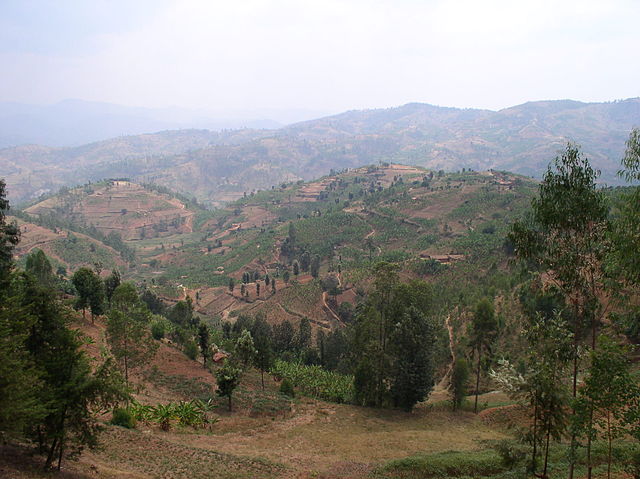Human occupation of Rwanda is thought to have begun shortly after the last ice age. By the 11th century, the inhabitants had organized into a number of kingdoms. In the 19th century, Mwami (king) Rwabugiri of the Kingdom of Rwanda conducted a decades-long process of military conquest and administrative consolidation that resulted in the kingdom coming to control most of what is now Rwanda. The colonial powers, Germany and Belgium, allied with the Rwandan court.
Twa women with traditional pottery
Landscape of Gitarama in the south
Cattle of Rwanda, c. 1942
Shore of Lake Kivu at Gisenyi
Belgium controlled several territories and concessions during the colonial era, principally the Belgian Congo from 1908 to 1960, Ruanda-Urundi from 1922 to 1962, and Lado Enclave from 1884 to 1910. It also had small concessions in Guatemala (1843–1854) and Belgian concession of Tianjin in China (1902–1931) and was a co-administrator of the Tangier International Zone in Morocco.
A missionary posing with a victim of the Congo atrocities
African troops recruited by the Congo Free State
Force Publique soldiers from the Belgian Congo in World War II
Belgian colonial officials in Léopoldville, 1938








